Why is it important to keep your gums healthy – and how do you do that?
Healthy gums are key to overall body health. Poor gum health – gum disease – affects nearly one in 10 adults by the age of 64. Surprisingly, gum disease can affect your emotional health, nutritional life, lungs, and even your heart.
Gum disease, medically known as periodontitis, is a soft tissue and bone-destroying infection within your gums from plaque build-up. In people who are susceptible to gum disease, the body over-reacts to the plaque/bacteria around the gums and causes inflammation that doesn’t resolve completely. It then slowly destroys the bone that supports your teeth. Your teeth become mobile and, if not professionally maintained and cared for, they will eventually fall out. In some cases, advanced gum inflammation can also affect the bloodstream and is believed to slowly damage blood vessels in the heart and brain over an extended period of time.
A 5-minute dental routine twice a day can substantially decrease your risk of developing these advanced health issues. This is simply brushing your teeth twice a day, morning and night, and flossing every day. If this is not part of your daily routine already, here are a few reasons you will want it to be.
Gum disease can result in a wide range of medical complications. Some studies suggest it can be linked with problems during pregnancy, dementia, and rheumatoid arthritis, and can also contribute to the chance of having a stroke.
Your emotional health
As we say at Trusted Dental, It all starts with a smile. Your smile is your calling card to the world. It is the first impression you create, and being able to smile confidently when face to face with someone is a wonderful feeling. One of the most commonly reported experiences after tooth extraction or loss is social embarrassment. This can affect the way you feel about yourself and diminish your confidence, making you question how others perceive you – not to mention the bad breath it will give you.
Your nutritional life
We are all aware that a balanced nutritional diet, full of crisp fruit and vegetables, is a major contributor to leading a healthy life. The truth is, if gum disease plays a part, resulting in wobbly teeth, these foods become harder to eat as the function of your teeth is compromised. Poor nutrition can then deprive your body of essential vitamins, causing fatigue, dizziness, poor gut health, headaches and more.
Your lung health
Periodontitis can compromise your lung health. It can increase the risk of respiratory infections such as pneumonia. This can occur from inhaling bacteria into the respiratory tract. Also, some research suggests that people with Chronic Obstructive Pulmonary Disease (COPD) can enhance their lung health by maintaining healthy gums.
Your heart health
Gum disease causes inflammation in the gums. Advanced periodontal disease can also increase inflammation levels throughout the entire body. Some studies suggest this increases the risk of stroke and heart disease, both being an inflammatory disease themselves.
So how do we avoid this? Here are the basics:
1. Brush your teeth twice daily with fluoride toothpaste. Make sure to brush along the gum line in addition to your teeth.
2. Replace worn-out toothbrushesat least every three to four months because they can injure your gums.
3. Floss between teeth or use an inter-dental cleaner once a day.
4. Rinse with an antiseptic mouthwash at least once a day.
5. See your dentist for check-ups and cleanings two or more times a year. If gums are bleeding, don’t wait. See your dentist right away. If you have periodontal disease, the dentist or dental assistant can use deep-cleaning measures or apply antibiotics. If disease is advanced, surgery can clean badly diseased gum pockets.
6. Keep your dentist up to date about any changes in your overall health, especially if you are pregnant or entering menopause, or have a disease such as diabetes. In these cases, pay special care to your dental health. You may be more susceptible to gingivitis.
7. Limit sugary snacks and drinks.
8. Eat a balanced diet. A recent study in men aged 65 and older showed that eating a diet rich in high-fibre fruit provided a special benefit: it appeared to slow the progression of periodontal disease.
9. If you’re a smoker, do everything possible to quit. People who smoke are more likely to have a buildup of plaque and tartar. In fact, smokers may be up to four times more likely to develop advanced periodontal disease than nonsmokers.
Dr Omid Salar
Principal Dentist – Trusted Dental

